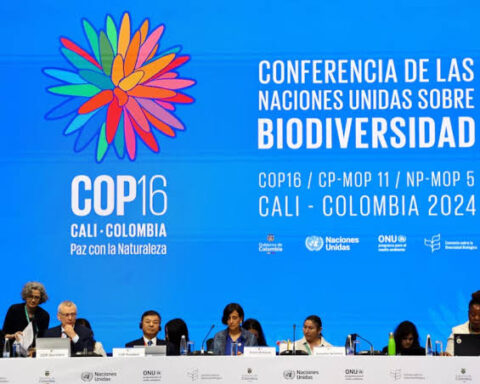The 26th session of the Subsidiary Body on Scientific, Technical and Technological Advice (SBSTTA-26) of the Convention on Biological Diversity (CBD) concluded on Saturday in Nairobi, Kenya.
The six-day meeting, attended by delegates from the 196 Parties to the CBD, resulted in significant recommendations addressing ocean biodiversity, modern biotechnology, global health, and biodiversity monitoring.
Key recommendations from the meeting will be presented at the upcoming 16th meeting of the Conference of the Parties (COP 16) scheduled to take place in Cali, Colombia, from October 21 to November 1, 2024.
These recommendations aim to advance the implementation of The Biodiversity Plan and enhance monitoring mechanisms.

Senka Barudanovic of Bosnia and Herzegovina, Chair of the SBSTTA Bureau, praised the delegates for their dedication and collaborative spirit.
“I sincerely congratulate delegates for their hard work in the spirit of compromise that allowed us to provide COP 16 with a key opportunity to strengthen the scientific and technical base to fully implement The Biodiversity Plan and monitor its progress,” Barudanovic said.
Among the critical issues discussed was the monitoring framework for the Kunming-Montreal Global Biodiversity Framework, adopted at COP 15.
This framework will guide countries in their national reporting, enabling robust and consistent tracking of progress at national, regional, and global levels.
On biosafety and biotechnology, the Parties recommended new voluntary guidance on the risk assessment of engineered gene drives. This guidance aims to enhance transparency and scientific rigor in evaluating potential risks and continues the essential work of detecting and identifying living modified organisms.
Further discussions on synthetic biology emphasized the need for horizon scanning to detect early signs of significant developments, along with capacity-building, technology transfer, and knowledge-sharing to address inequities affecting developing countries.
Marine and coastal biodiversity also featured prominently, with significant progress made towards describing ecologically or biologically significant marine areas (EBSAs).
COP 16 is expected to make crucial decisions on EBSAs, which are vital for supporting the new international agreement on Biodiversity Beyond National Jurisdiction.
A proposed Global Plan of Action on Biodiversity and Health was another highlight. This plan aims to connect various actors and their expertise to address biodiversity and health through actions on pollution, species management, mainstreaming, and access and benefit-sharing.
David Cooper, Acting Executive Secretary of the CBD, underscored the meeting’s achievements.
“This meeting showed the willingness of Parties to the CBD to reach consensus on the important scientific foundations of our work to achieve The Biodiversity Plan.
“The discussions have wide-reaching implications on biosafety, biotechnology, biodiversity in our oceans, and new global work on the health of people, plants, and animals,” he said.
The outcomes of SBSTTA-26 set the stage for significant decisions at COP 16, which will be crucial for the global community’s efforts to safeguard biodiversity and address the intertwined challenges of environmental conservation and health.
By Dare Akogun








